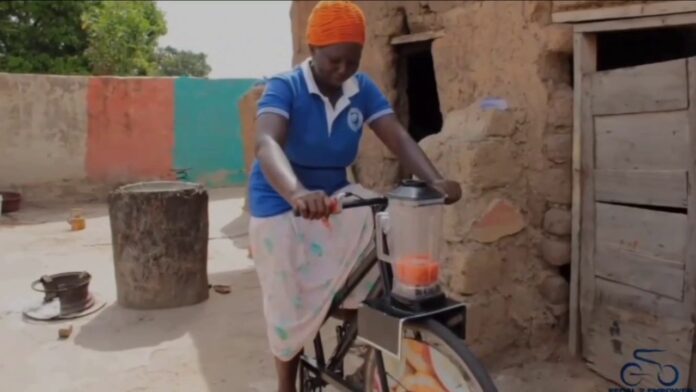To address this issue, a lecturer at the Takoradi Technical University has developed blenders and shellers built on bicycles to support communities without electricity.
About 75% of households in Ghana’s northern regions are farmers, but their lack of access to electricity makes it difficult to live conveniently.
Women and children in these areas are particularly affected by the absence of electricity. Under the Pedal 2 Empower project, researchers at the Takoradi Technical University have designed a simple, environmentally-friendly machine to assist residents in the Upper West Region.
The blenders and shellers are built on a bicycle frame and employ pedaling to power the blades of the blender for cutting and shelling. According to Kwadwo Asare Apori, the team lead for the eco-friendly project, the machine efficiently converts the energy from pedaling into electricity using the dynamo mechanism.
The developers highlight that most residents in Ghana’s North are skilled in cycling, as it is the major means of transport in rural communities in the five regions. Consequently, the bicycle blenders and shellers are expected to be easily adopted by these communities.
The group has built a maize sheller, rice dehusker, and shea nut grinder for the communities, providing them with convenience and reducing carbon emissions. As Asare Apori puts it, “Because there’s no fossil fuel usage, the machine helps reduce greenhouse gas emissions and improve personal health.”
Users of the machine have expressed positive feedback, noting that it eases the burden of grinding on stones and farming activities while boosting their health. One beneficiary shared her experience, highlighting that the machine is a better alternative to electric blenders, as it allows her to prepare meals and blend spices conveniently.
The developers aim to extend the project to other regions as demand for the machine surges and are appealing for support in the form of funding to provide these machines freely to these communities.

